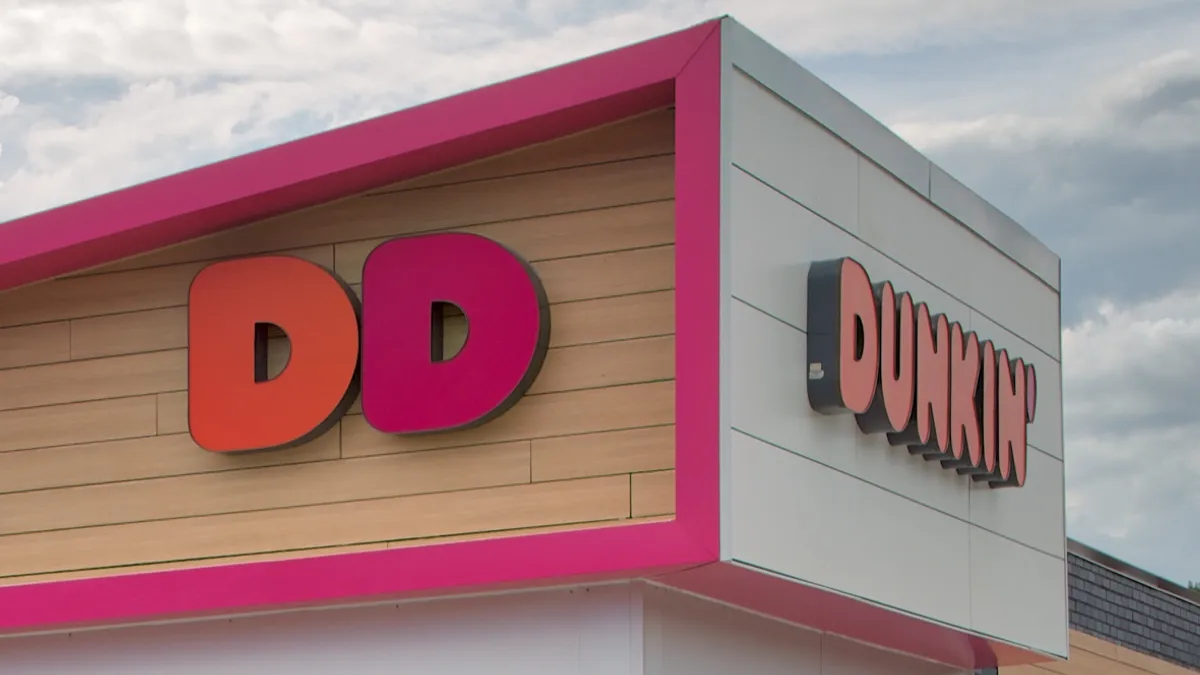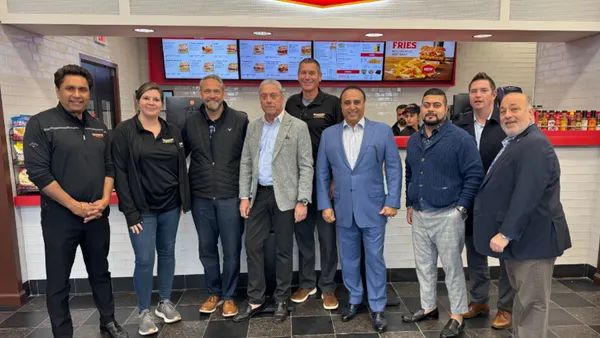Dive Brief:
- Dunkin' plans to open several new nontraditional locations by the end of this year, building on the 27 nontraditional restaurants it opened in 2020, according to a press release emailed to Restaurant Dive. Those units were located in airports, malls, supermarkets and universities.
- So far this year, the brand has opened nontraditional locations in casinos, hotels, hospitals, convention centers and a Great Wolf Resorts. Later this year, it plans to focus on airport expansion with New York's JFK airport in Terminal 1 and Chicago's O'Hare Airport in Terminal 5.
- Non-traditional formats, particularly those at airports, casinos, hotels and universities, have taken a big hit during the pandemic, but Dunkin's plan suggests confidence that these segments will rebound.
Dive Insight:
Dunkin' has the ability to "easily tailor" its format and menu to meet the needs of a specific location, according to the company.
"Our flexible concepts for any non-traditional format have been an essential aspect of our growth over the past decade and will remain a vital part of our future development strategy," Chris Burr, director of nontraditional development at Dunkin' parent company Inspire Brands, said in the emailed release.
This plan may also illustrate the chain's confidence in its own experience with nontraditional formats. The company has a long history with such locations, but closed several of them in 2018, citing their inability to provide the full experience of the brand.
Those were different times. Now, consumers want on-the-go options enabled by digital channels. Diner demand for off-premise channels also continues to hold steady despite dine-in service opening back up, proving the staying power of locations designed for quick and easy transactions.
Nontraditional locations also tend to come with lower startup costs because of their smaller footprints, and lower labor costs thanks to fewer operating hours. This means there is less capital risk if the pandemic worsens.
These units are an attractive proposition for franchisees looking to establish a presence in a new market. Expanding through nontraditional venues also allows Dunkin' to cater to a captive audience, such as hospital employees or travelers on a layover, and also engage with diners who may not have been exposed to the brand before.
Other QSR concepts are accelerating nontraditional unit growth, as well. WOWorks, for example, is ramping up its its nontraditional presence with units in airports, college campuses and grocery stores. Wendy's recently opened a unit inside a Walmart in Ohio.
There could be challenges ahead for nontraditional growth plans, however. The rising delta COVID-19 variant could affect traffic at airports or malls, for example, and universities could shift their operations online again if cases worsen. Airport shops and restaurants lost a total of $3.4 billion in 2020, for example.









